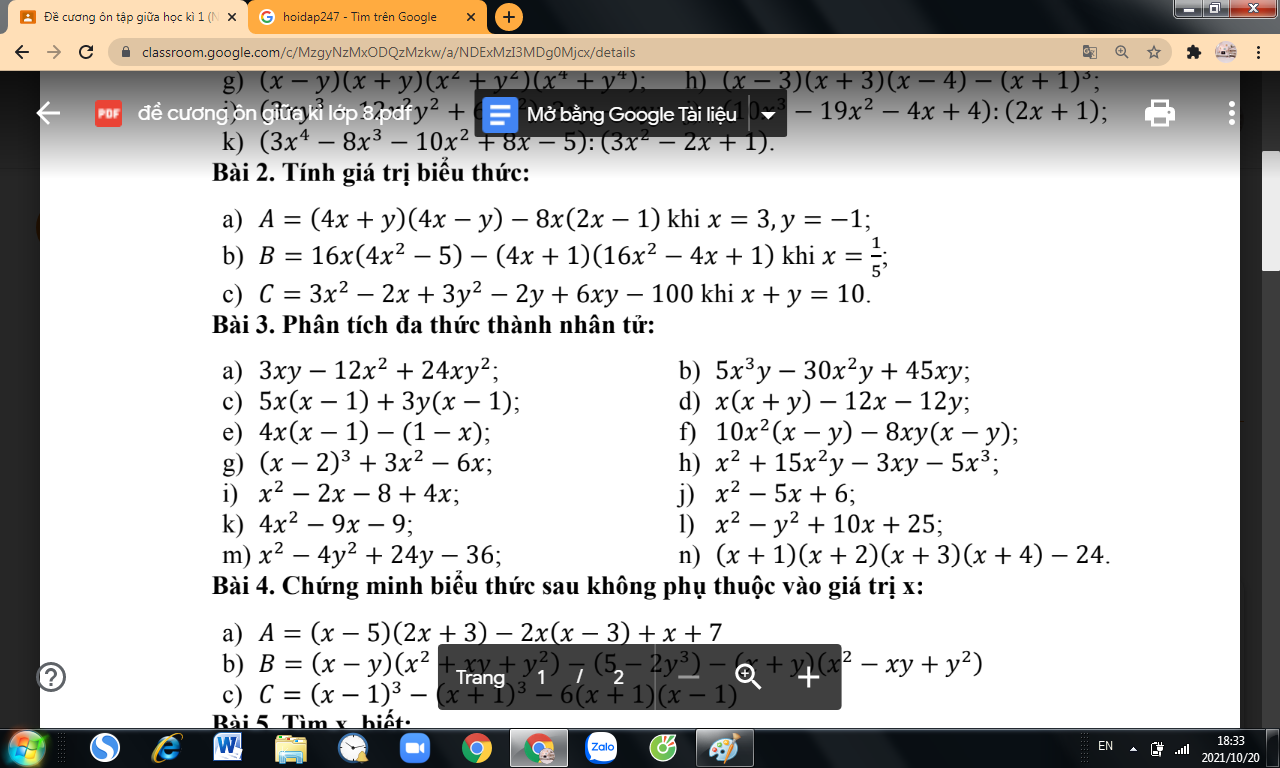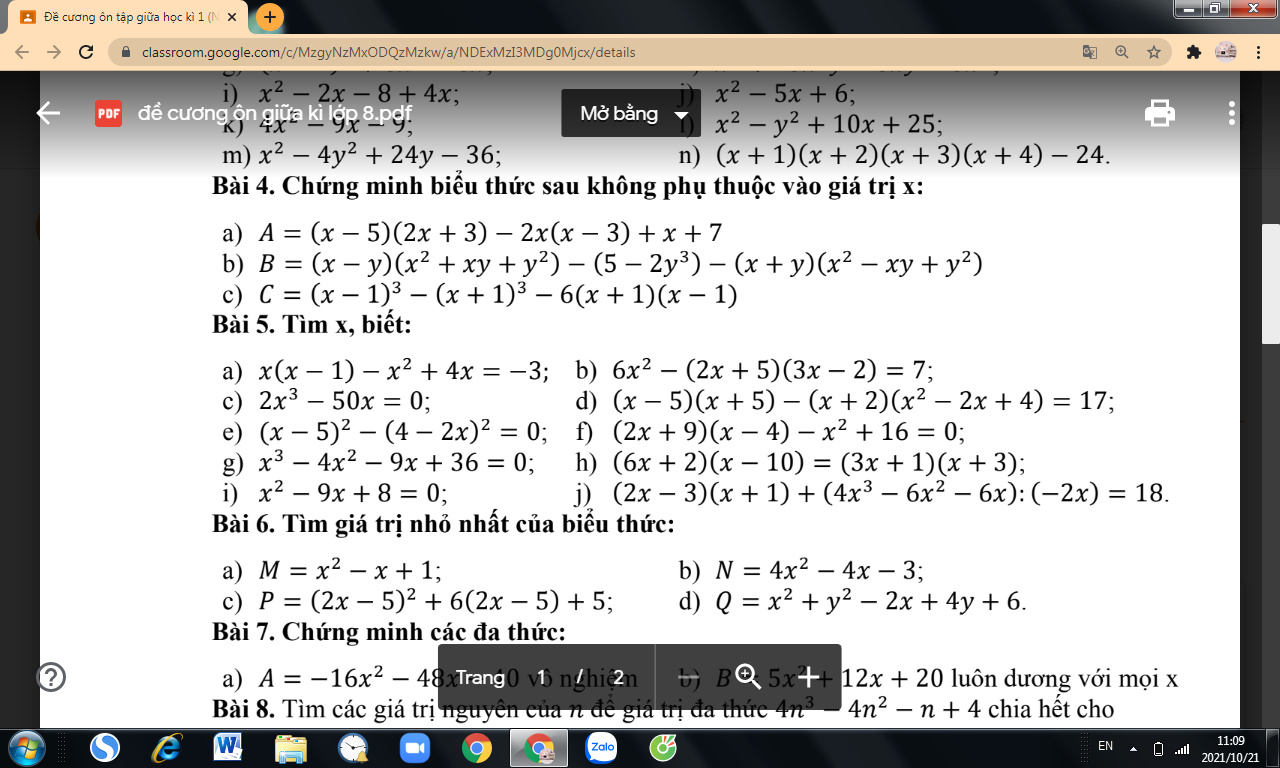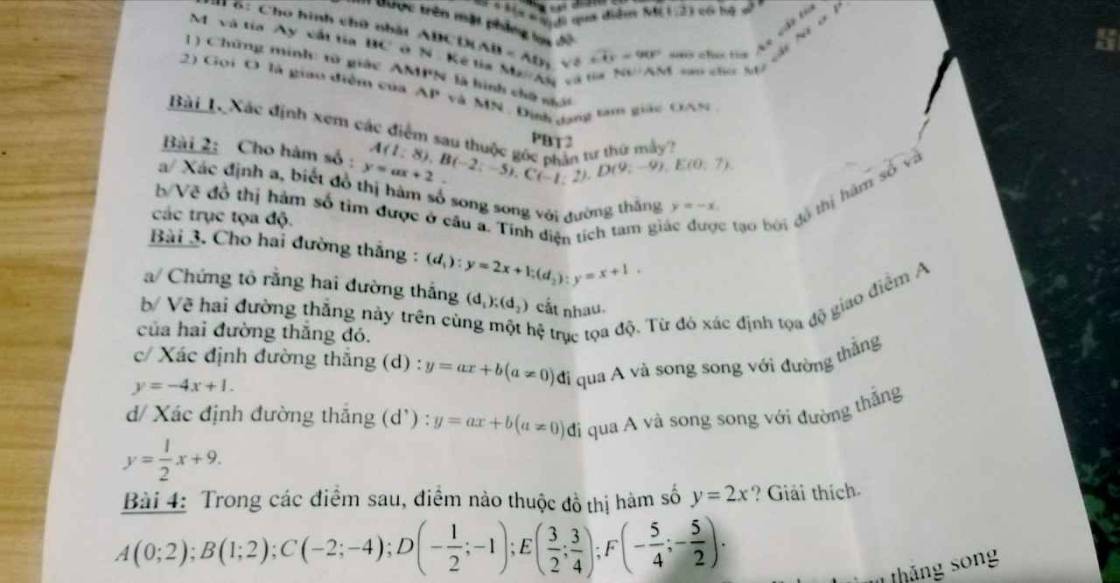Câu 1:
a: Ta có: -4x+5=9
\(\Leftrightarrow-4x=4\)
hay x=-1
b: Ta có: \(\dfrac{1}{x+3}+\dfrac{2}{x\left(x+3\right)}=\dfrac{3}{x}\)
Suy ra: \(x+2=3x+9\)
\(\Leftrightarrow-2x=7\)
hay \(x=-\dfrac{7}{2}\left(nhận\right)\)
-4x + 5 = 9
-4x -4 = 0
-4 ( x - 1 ) = 0
x-1=0
x=1
Câu 2:
c: Ta có: \(-3x+5\ge7\)
\(\Leftrightarrow-3x\ge2\)
hay \(x\le-\dfrac{2}{3}\)
d: Ta có: \(\left(x-3\right)\left(x+3\right)< \left(x-2\right)^2+3\)
\(\Leftrightarrow x^2-9-x^2+4x-4< 3\)
\(\Leftrightarrow4x< 16\)
hay x<4



















